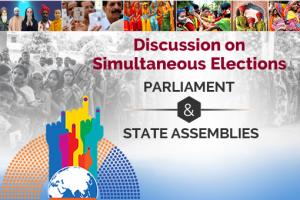- Chandigarh UT
- Creative Corner
- Dadra Nagar Haveli UT
- Daman and Diu U.T.
- Department of Administrative Reforms and Public Grievances
- Department of Biotechnology
- Department of Commerce
- Department of Consumer Affairs
- Department of Industrial Policy and Promotion (DIPP)
- Department of Posts
- Department of Science and Technology
- Department of Telecom
- Digital India
- Economic Affairs
- Ek Bharat Shreshtha Bharat
- Energy Conservation
- Expenditure Management Commission
- Food Security
- Gandhi@150
- Girl Child Education
- Government Advertisements
- Green India
- Incredible India!
- India Textiles
- Indian Railways
- Indian Space Research Organisation - ISRO
- Job Creation
- LiFE-21 Day Challenge
- Mann Ki Baat
- Manual Scavenging-Free India
- Ministry for Development of North Eastern Region
- Ministry of Agriculture and Farmers Welfare
- Ministry of Chemicals and Fertilizers
- Ministry of Civil Aviation
- Ministry of Coal
- Ministry of Corporate Affairs
- Ministry of Culture
- Ministry of Defence
- Ministry of Earth Sciences
- Ministry of Education
- Ministry of Electronics and Information Technology
- Ministry of Environment, Forest and Climate Change
- Ministry of External Affairs
- Ministry of Finance
- Ministry of Health and Family Welfare
- Ministry of Home Affairs
- Ministry of Housing and Urban Affairs
- Ministry of Information and Broadcasting
- Ministry of Jal Shakti
- Ministry of Law and Justice
- Ministry of Micro, Small and Medium Enterprises (MSME)
- Ministry of Petroleum and Natural Gas
- Ministry of Power
- Ministry of Social Justice and Empowerment
- Ministry of Statistics and Programme Implementation
- Ministry of Steel
- Ministry of Women and Child Development
- MyGov Move - Volunteer
- New Education Policy
- New India Championship
- NITI Aayog
- NRIs for India’s Growth
- Open Forum
- PM Live Events
- Revenue and GST
- Rural Development
- Saansad Adarsh Gram Yojana
- Sakriya Panchayat
- Skill Development
- Smart Cities
- Sporty India
- Swachh Bharat (Clean India)
- Tribal Development
- Watershed Management
- Youth for Nation-Building
Discussion on Simultaneous Elections

Start Date :
Sep 07, 2016
Last Date :
Oct 16, 2016
00:00 AM IST (GMT +5.30 Hrs)
The desirability of holding simultaneous elections for the Lok Sabha and Vidhan Sabhas has been discussed at various levels. A considered view is that simultaneous elections will ...


regional parties must be restricted to vidhansabha elections only!
they're only a nuisance in loksabha, what're they doing in the parliament of India when their agenda is only local?
this si best way to tackle horse trading & blackmailing, thus central Govt can be stable & focus on governance
Yes, so that to avoid influence from the results of different state.
All these were for propaganda purpose.The elections required for well to do Nations but not useful for poor nations.This not useful for India it must be post phoned for 50 years to make India as heaven.If it continues further India will become VARNASANKARAMU AND ALL WILL BECOME CORRUPTS and prostitutes in near future.Think over 24 hours.
Sir, Let's create a virtual state called "NRI-State" and assign 10-15 virtual MP'S on the basis of the population of each foreign country..-This will help in increasing the percentage of educated people in govt making process....Dr. Vinod Prasad (Prof. Ministry of Higher Education, Oman)
This idea will very beneficial for country. Some parties have different agendas for national level and states level issues.These parties made fool voters.If whole India gov.and states gov.s will have common target, then country will go ahead definitely. Extra expenditures ,time and manpower will not waste.Age limit,qualification and time of service should also fixed or define for contesting elections.rallyes by parties should also limited,do debates for telling their agendas to people.
i think right now
simultaneous election lay platform for sound governance. There will not be any hurdle to the government in implementing Policies and decisions of the Government There will not be any pressure on the decision outside the governance . Further unnecessary expenditure on election will be reduced State central and inter state relationship is more viable
Under RTI 25% of the seats are reserved to underprivileged and downtrodden. The Government is going to reimburse expenditure on education up to 12th standard. Instead Government run schools may be started. If the entire process is analyzed Government is spending one out of four schools recurrent expenditure Instead Government schools may be started. one may argue that infrastructure facilities that is only one time expenditure and very little for maintenance when compared to aid to 25%
This is a very intellectual proposal. Conduting simultaneous elections will irradicate many unwanted overhead on all level of government authorities. I have shared my views in the below file
Simultaneously holding LokSabha and Assembly elections is essential.Elections only once in five years with suitable clauses is also necessary.